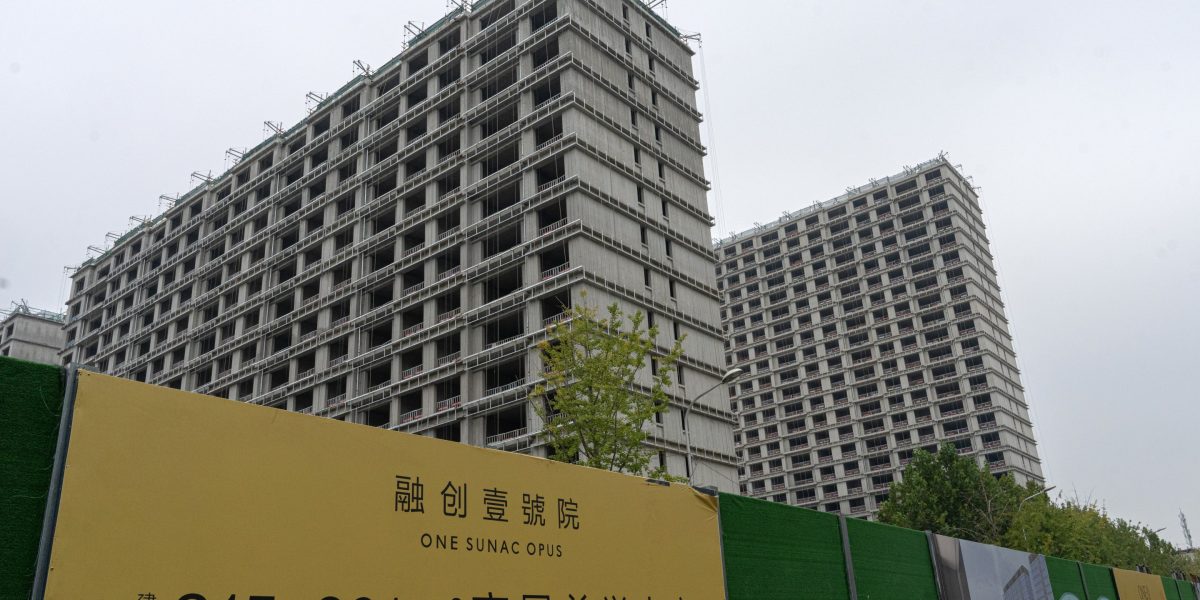China’s CSI 300 stock index has faced a tough 10 days. The index, which tracks shares on the Shanghai and Shenzhen exchanges, has fallen 11% since hitting a high for the year on Oct. 8. That plunge, which puts the index in correction territory, continued Thursday with another 1% drop.
The culprit? Stimulus—or the lack thereof.
Thursday’s dip came after Beijing announced two new measures aimed at the property market. China said loans for its “white list” property projects will reach 4 trillion yuan ($561.7 billion) by the end of this year. A total of 2.23 trillion yuan ($313.1 billion) had already been approved to “white list” developers.
The “white list”, announced in January, is a list of approved developers who are eligible to receive speedier lending to try to ensure that unfinished housing projects are completed so they can be delivered to buyers.
China will also aim to renovate one million homes in run-down downtown districts and residents will be compensated accordingly.
But those measures seem to be short of what investors were hoping for, especially after authorities announced a range of stimulus measures in late September that helped spark a rally before China went on a weeklong national day break. Subsequent press conferences on stimulus measures have underwhelmed investors and resulted in stock market declines.
The Hang Seng Mainland Properties Index closed down 6.7% Thursday and is down 23% from its year-high on Oct. 2.
“Not enough”
Macquarie’s global economists Larry Hu and Yuxiao Zhang wrote in a note on Thursday that the measures “may not be enough to turn the housing market around”. The note added that it would have been better if authorities expanded a program announced in May that would allow the government to act as the buyer of last resort in the housing market.
China’s real estate sector was estimated to account for as much as a third of the country’s economy just a few years ago. But the sector has been in a slump since Beijing cracked down on developers’ high-level of debt in 2020.
The years-long crackdown has affected home prices, which in turn has also affected consumer confidence as about 70% of the country’s household wealth is parked in real estate. Potential buyers may also hold off on purchases if they expect home prices to continue dropping, which in turn affects developers who are dependent on sales revenue. Macquarie estimates sales revenue makes up about 45% of total developer funding.
But while many analysts were disappointed, some viewed Thursday’s announcement as taking a more “pragmatic stance”.
Bruce Pang, the chief economist for Greater China at Jones Lang LaSalle said in comments to Bloomberg that Beijing is expecting the property sector to be “neither a driver or a drag of economic growth, but a stabilizer going forward.”
A UOB research note published Thursday also noted that the government will continue to watch the property market closely, and that the bank expects the government will still step up support when needed, but more to “manage the downsizing rather than to reverse the trend.”
